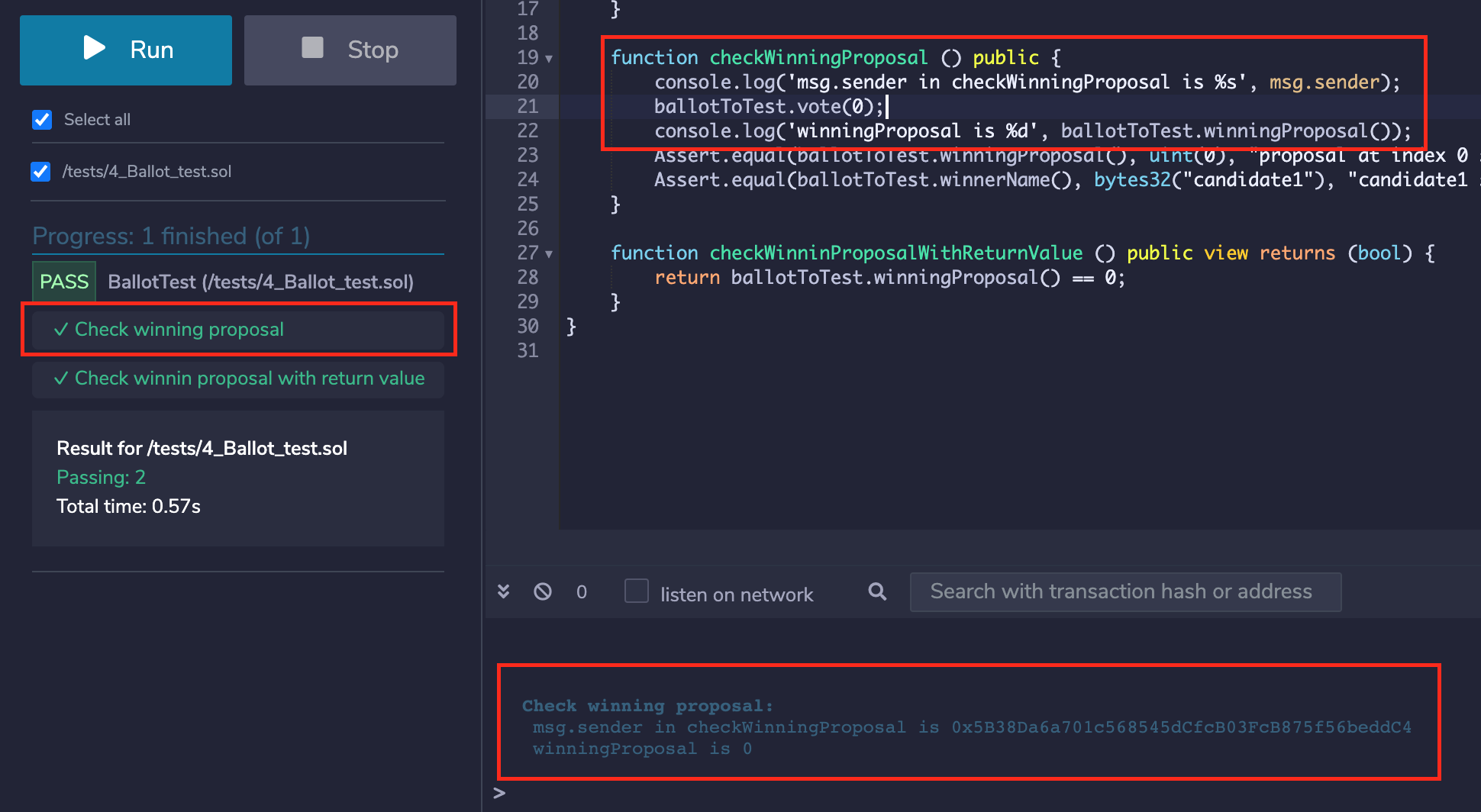Hardhat
(Supported since Remix IDE v0.12.0 and Remixd v0.3.6)
Remixd and Hardhat
Note: If you have not used remixd before, read more about it here
If remixd is running locally on your device and shared folder is a Hardhat project, an additional websocket plugin will be listening on port 65522. According to its documentation,
Hardhat projects are npm projects with the hardhat package installed and a hardhat.config.js or hardhat.config.ts file.
Remixd looks for the hardhat.config.js or hardhat.config.ts file in shared folder, and if it finds the file, the Hardhat websocket listener will run.
The Hardhat websocket listener is a websocket plugin similar to remixd and is used to perform Hardhat specific actions with Remix IDE.
It doesn’t need any separate installation as it is shipped with remixd NPM module.

Enable Hardhat Compilation
Prerequisites
To use Hardhat compilation with Remix IDE efficiently:
Hardhat should be installed locally on the system https://hardhat.org/getting-started/#installation
Shared folder should be a Hardhat project containing
hardhat.config.jsorhardhat.config.tsRemixdHardhat websocket listener should be running at65522
How to use
If a hardhat project is shared through remixd and localhost workspace is loaded in Remix IDE, there will be an extra checkbox shown in Solidity Compiler plugin with the label Enable Hardhat Compilation.
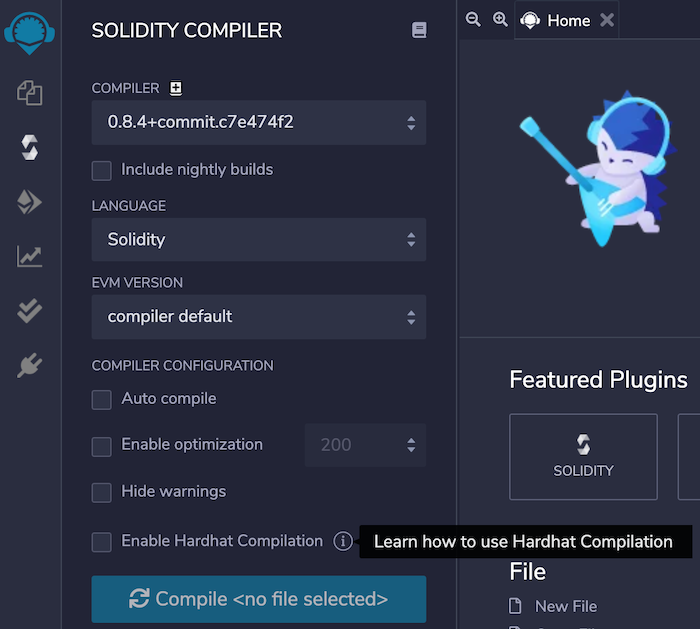
There is an info icon alongside the label which redirects to a specific section of Remix official documentation that explains how to use Hardhat compilation.
One can check the Enable Hardhat Compilation box to run the compilation for Hardhat along with the Remix using the compiler configuration in Solidity Compiler plugin.
On clicking Compile button, a file with remix-compiler.config.js will be created on the project root which will be storing compiler configuration set in Remix’s Solidity Compiler plugin. It is passed to Hardhat for compilation.
The result of the compilation will be shown in the Remix IDE terminal
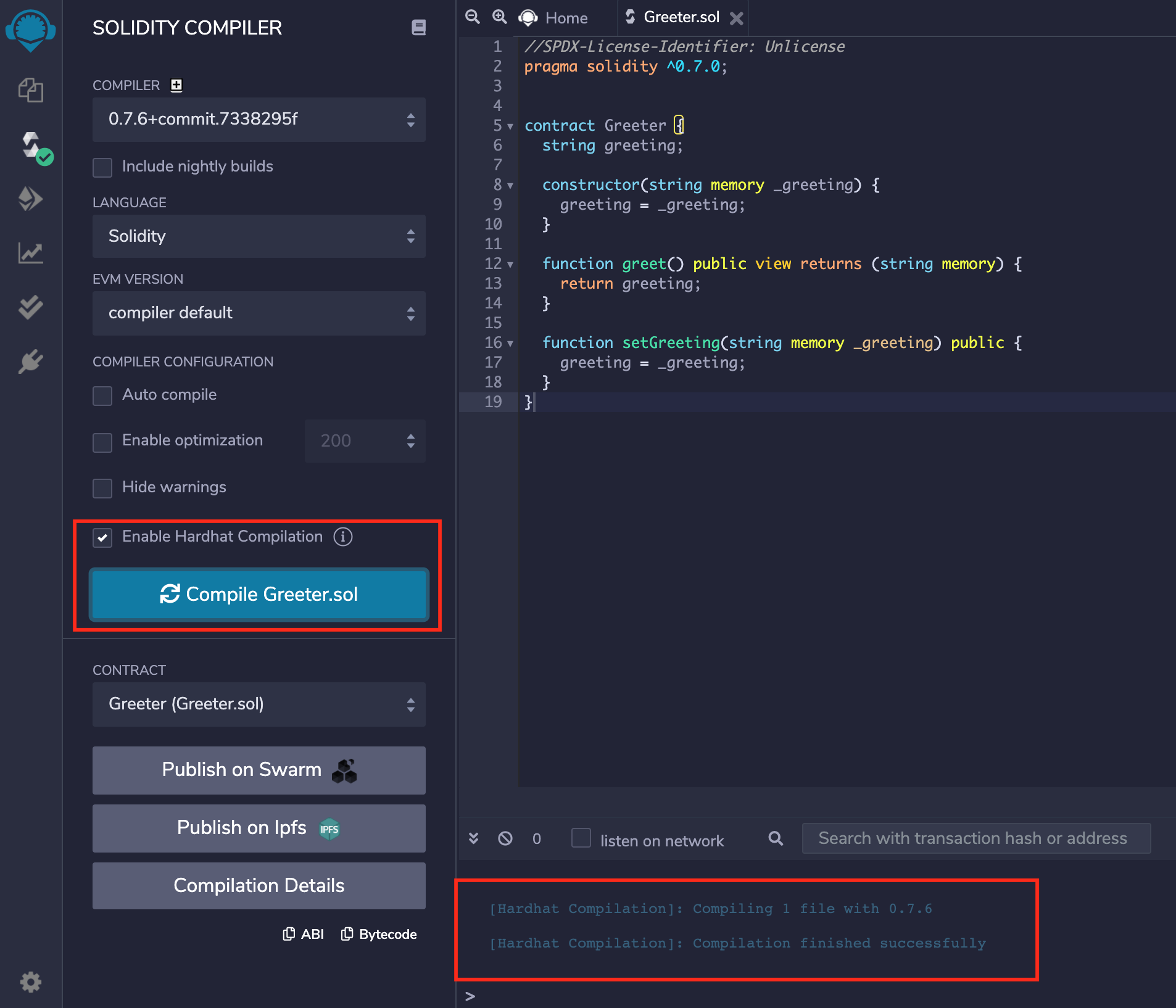
and also in the remixd terminal.

Hardhat Provider
In Hardhat, contracts are deployed by starting a local node. Read more about it in Hardhat documentation
Hardhat Provider is a plugin on Remix IDE which enables users to deploy the contract to the Hardhat ‘localhost’ network. This can be chosen from the ENVIRONMENT dropdown of Deploy and Run Transactions plugin.
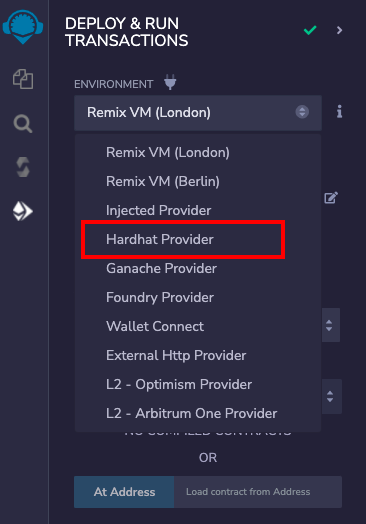
As soon as you select Hardhat Provider, a modal is opened asking for the Hardhat JSON-RPC Endpoint.
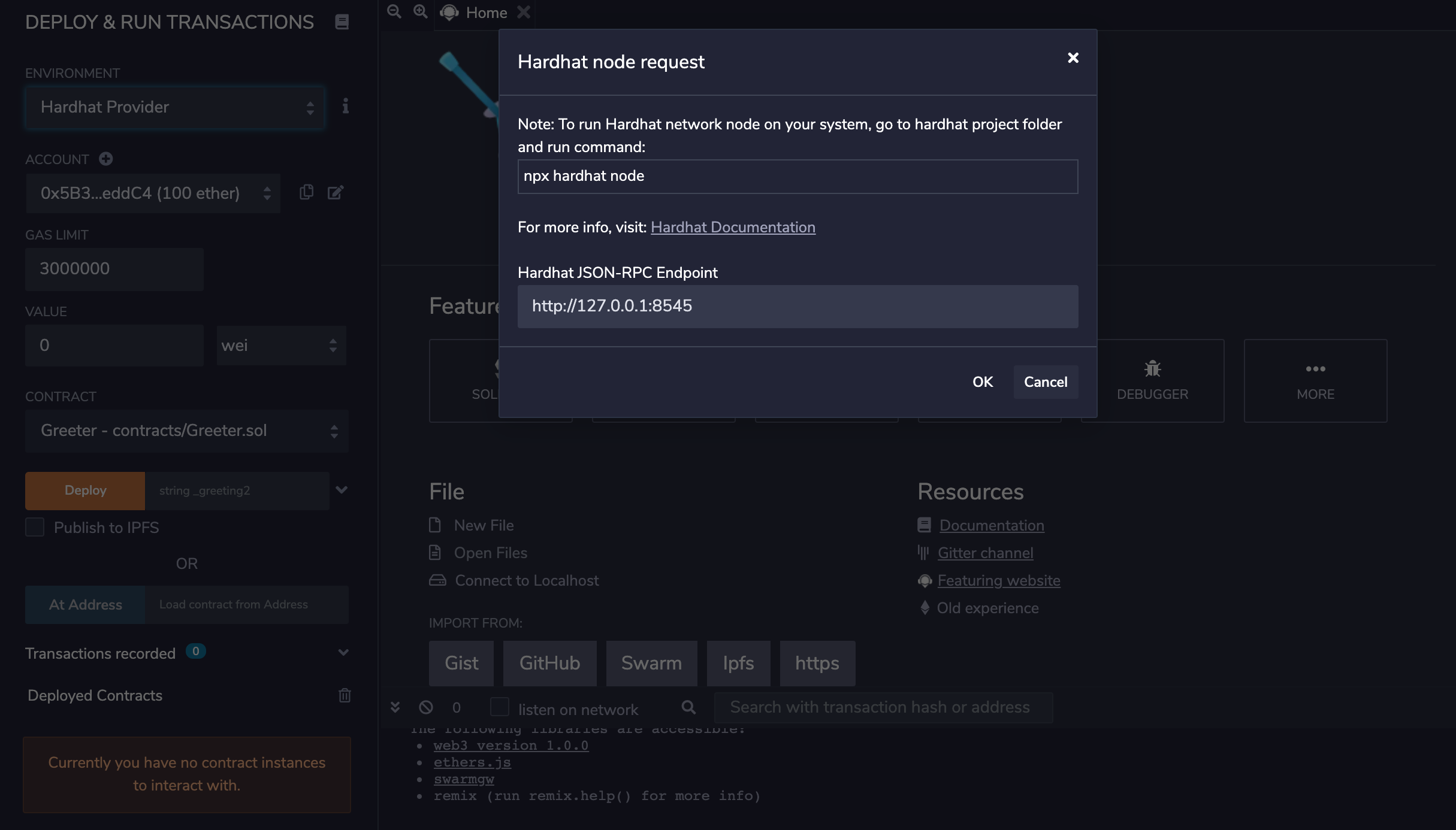
If Hardhat node is running with default options, then the default endpoint value in modal will not need any change. In case, Hardhat node host and port are different, JSON-RPC endpoint should be updated in the modal text box.
Once the correct endpoint is filled in the modal, just click on OK and the accounts from the Hardhat node will be loaded in the ACCOUNT section. Network id will also be shown.
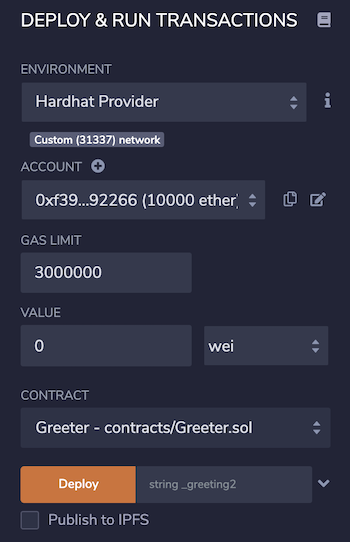
Now, one can start deploying the contract from Remix IDE to the Hardhat local node as usual.
console.log in Remix IDE
(Supported since Remix IDE v0.17.0)
Remix IDE supports hardhat console library while using Remix VM. It can be used while making a transaction or running unit tests.
Deploy and Run Transactions
To try it out, you need to put an import statement and use console.log to print the value as shown in image.
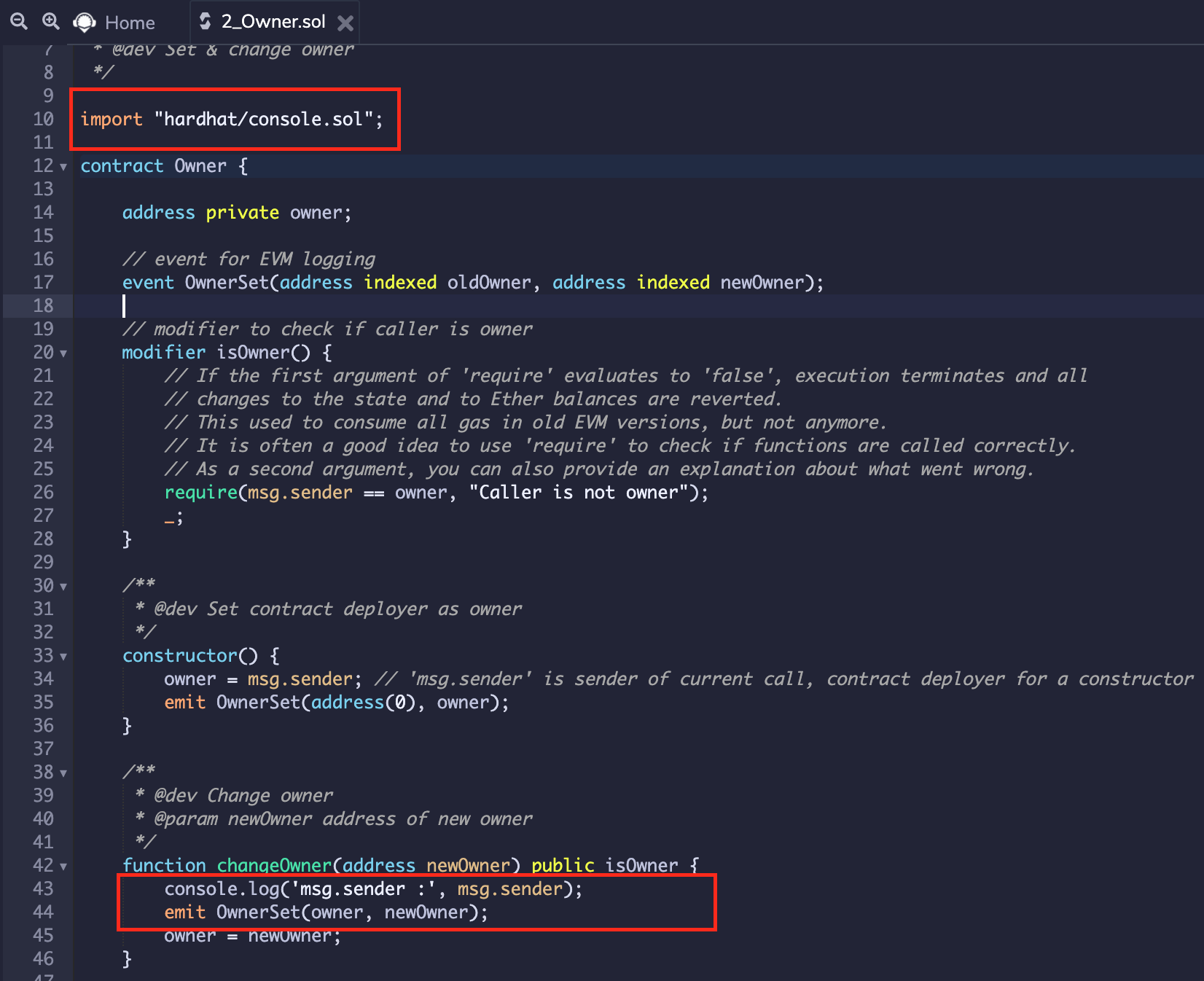
Further, once you execute the changeOwner method, the value from console statement will be shown in Remix terminal after transaction details as below:

Solidity Unit Testing
Similarly, console.log can be used while running unit tests using Remix Solidity Unit Testing plugin. See image below.
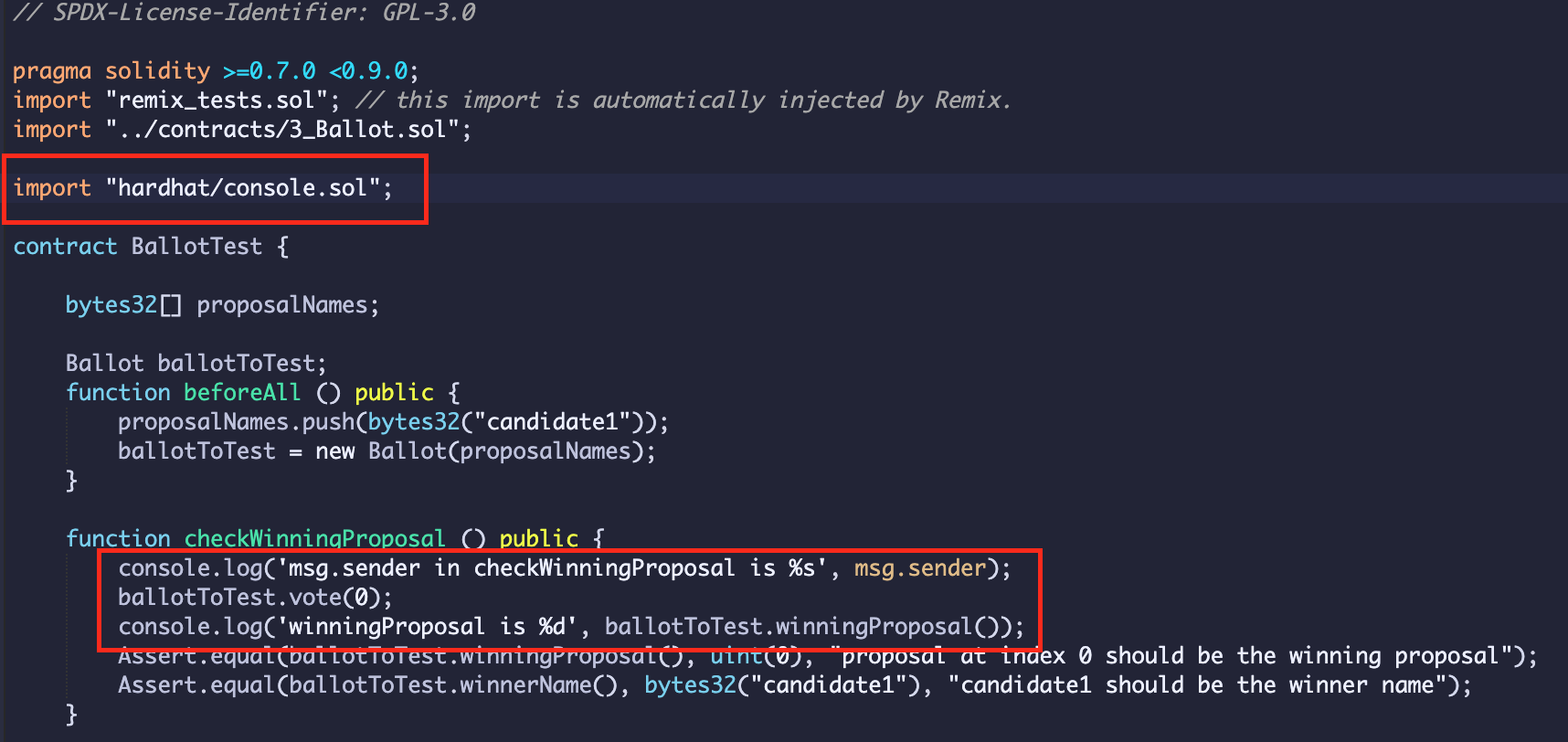
For the tests including logging message, it will display in the Remix Terminal corresponding to test name.
